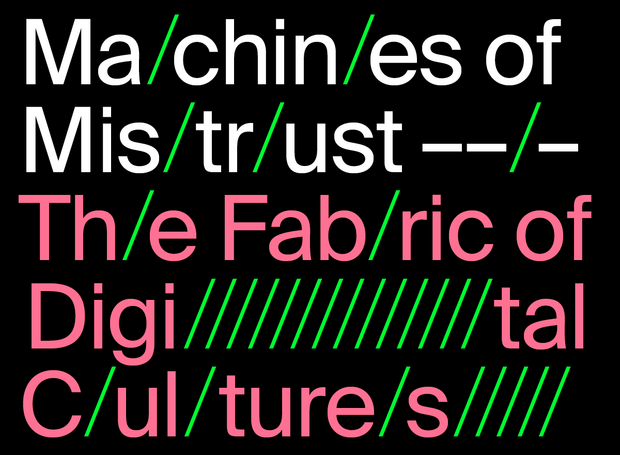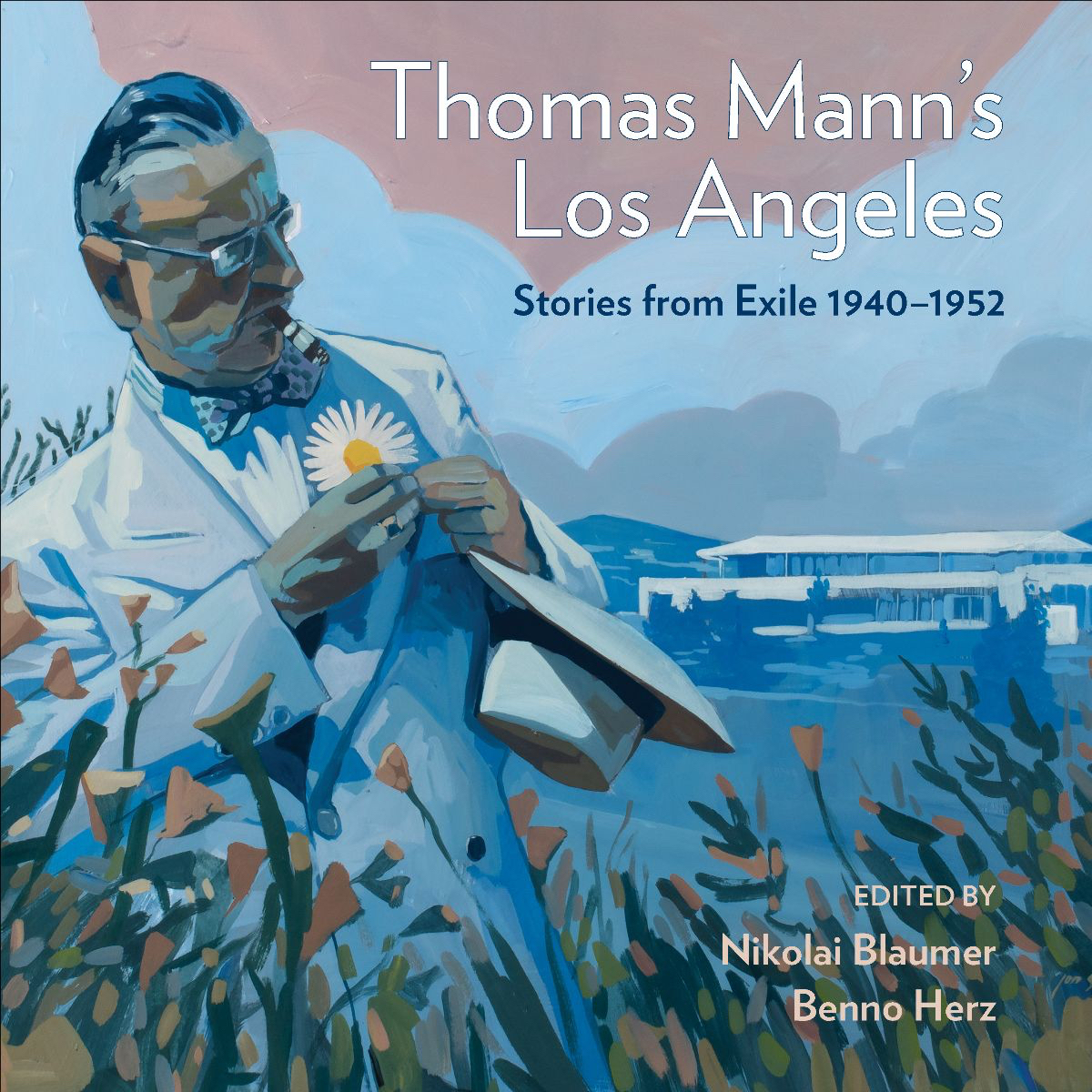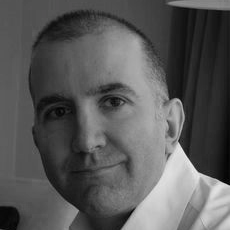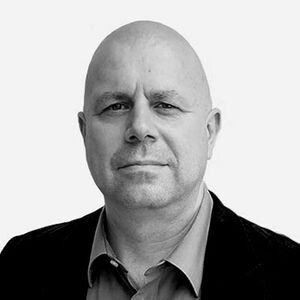Thomas Mann House Events Archive
July 2022
Exit Exil. Fünf Frauenleben in L.A. (4/5): The life divided
Radio

Information
Fritzi Massary was the most famous operetta singer of her time. But then came the Nazis, her flight to Los Angeles and oblivion. Time to rediscover her story together with composer Farahnaz Hatam.
A good 100 years ago, the young Austrian Fritzi Massary was a star on the stages of Berlin. She was the face of Berlin's Metropol Theater, and her frivolous song "Why shouldn't a woman have an affair" was a hit. But even before Hitler came to power, SA people disrupted her performances with chants.
After her escape in 1932, she lived in Los Angeles in the neighborhood of the German exile bohemians around Thomas Mann and Marta and Lion Feuchtwanger. But even though she was awarded the Federal Cross of Merit in 1957, her career was over.
Together with composer and Villa Aurora fellow Farahnaz Hatam, Étienne Roeder visits the site of her great successes in Berlin - to discover that the spirit of "the Massary" is still in the air there.
After being broadcast on the radio, the radio features "EXIT EXIL. Five Women's Lives in LA" will be presented in our app "Exit Exil," which will be available free of charge in the appshops later this summer. In the coming years, it will develop into a central platform for artistic, journalistic and academic contributions focusing on German-speaking exile in the US. Current debates on migration, identity, etc. will take a prominent place. EXIT EXIL is designed as a network project and will be successively expanded by further content from alumni of the VATMH residency programs and cooperation partners from culture and science.
EXIT EXIL was developed within the framework of "dive in. Program for Digital Interactions" of the German Federal Cultural Foundation, funded by the Federal Government Commissioner for Culture and the Media (BKM) in the NEUSTART KULTUR program.
Partner
A cooperation of Villa Aurora & Thomas Mann House and Deutschlandfunk.
Exit Exil. Fünf Frauenleben in L.A. (5/5): The Misjudged
Radio

Information
Heinrich Mann's wife Nelly Kröger came from a humble background. Exiled in L.A., she felt all the contempt of the upper-middle-class intellectual Mann-family. Étienne Roeder follows her footsteps in Los Angeles.
A fairy tale-like story: A bar girl falls in love with a rich, respectable man. They marry and could be happy together. But the uneducated and penniless Nelly Kroeger was never accepted by her husband's famous family.
Without his wife, Heinrich Mann would probably never have survived the grueling escape to France and later America. Lonely and desperate, she took her own life in 1944.
In the last episode of the series "Exit Exile" Étienne Roeder travels to L.A. to learn more about this tragic life and to personally visit the places of the past episodes.
After being broadcast on the radio, the radio features "EXIT EXIL. Five Women's Lives in LA" will be presented in our app "Exit Exil," which will be available free of charge in the appshops later this summer. In the coming years, it will develop into a central platform for artistic, journalistic and academic contributions focusing on German-speaking exile in the US. Current debates on migration, identity, etc. will take a prominent place. EXIT EXIL is designed as a network project and will be successively expanded by further content from alumni of the VATMH residency programs and cooperation partners from culture and science.
EXIT EXIL was developed within the framework of "dive in. Program for Digital Interactions" of the German Federal Cultural Foundation, funded by the Federal Government Commissioner for Culture and the Media (BKM) in the NEUSTART KULTUR program.
Partner
A cooperation of Villa Aurora & Thomas Mann House and Deutschlandfunk.
Machines of Mistrust – The Fabric of Digital Cultures
Los Angeles (Thomas Mann House)

Information
There is a paradox at the heart of the ongoing digital revolution: On the one hand, we have more information at our hands than ever, yet, it seems more and more impossible to even agree on fundamental facts in partisan conflicts. In today’s digital media ecosphere, problems such as so-called echo chambers, a lack of transparency when it comes to the fact-checking of legitimate sources and the amplification of radical minority opinions by intransparent algorithms have led to fading trust in both traditional media systems as well as social media platforms. How did the very technologies that many thought would enhance our faith in one another in fact came to corrode it? Common ideas of trust in science and technology were constructed differently over the centuries and communicated through ever changing constellations of media – from personal witnessing to peer reviewed journal articles to Twitter’s news feed. Can we potentially draw conclusions for the future by looking at our historical relationship to technologies and digital media?
During his time at the Thomas Mann House, Claus Pias, Professor of History and Epistemology of Media, explores the beginnings of narratives around the digital age and its historiographical, economic, scientific and ideologic purposes. Together with Soraya de Chadarevian, Professor in the Department of History and the Institute for Society and Genetics at UCLA, as well as Fred Turner, Professor of Communication at Stanford University, they will discuss issues around our conceptions of today’s media environments.
The conversation will be moderated by Ulrich Johannes Schneider, a 2022 Thomas Mann Fellow and Historian of Knowledge.
This event will take place at the Thomas Mann House and is by invitation only.
Participants

Soraya de Chadarevian is Professor in the Department of History and the Institute for Society and Genetics at UCLA. She is a historian of science, technology and medicine with a background in biology and philosophy. Her main area of interest are the technical and visual practices of the life and biomedical sciences in the twentieth and twenty-first century. She came to UCLA from the University of Cambridge. Her research has been supported by numerous grants, including most recently by a scholar award from the National Science Foundation. Her most recent monograph Heredity under the Microscope: Chromosomes and the Study of the Human Genome (2020) is a study of the postwar history of human heredity, told from the vantage point of chromosomes and the visual evidence they provided.

Fred Turner is the Harry and Norman Chandler Professor of Communication at Stanford University. He is the author of books such as Seeing Silicon Valley: Life inside a Fraying America (with Mary Beth Meehan); L’Usage de L’Art dans la Silicon Valley; The Democratic Surround: Multimedia and American Liberalism from World War II to the Psychedelic Sixties, and From Counterculture to Cyberculture: Stewart Brand, the Whole Earth Network, and the Rise of Digital Utopianism. Before coming to Stanford, he taught communication at Harvard’s John F. Kennedy School of Government and MIT’s Sloan School of Management. He also worked for ten years as a journalist. Turner has written for newspapers and magazines ranging from the Boston Globe Sunday Magazine to Harper’s.

Claus Pias studied electrical engineering, art history, German literature and philosophy in Bonn and has taught at the Universities of Bochum, Essen, Vienna and Princeton. He is professor of History and Epistemology of Media at Leuphana University Lüneburg and director of the Center for Digital Cultures and the Institute for Advanced Studies in Media Cultures of Computer Simulation. His research focuses on the history of media in science, technology and art. He is currently working on the temporal and epochal semantics of digital cultures and their Cold War beginnings. Among other publications, Pias is the author of books such as Computer Game Worlds and The Oxford Handbook of Media, Technology, and Organization, with Robin Holt and Timon Beyes. Claus Pias is a 2022 Thomas Mann Fellow.

Ulrich Johannes Schneider is a librarian and historian of knowledge. Since 2005, he has been the director of the Leipzig University Library. From 1999 to 2005 Ulrich Johannes Schneider was head of the department of research projects and research planning at the Herzog August Bibliothek in Wolfenbüttel. Since 2004, he has been a professor of philosophy at the Institute for Cultural Studies of Leipzig University. Schneider’s multi-year project of a global library history of modernity examines the social status of libraries in different social contexts on the basis of library use. Ulrich Johannes Schneider is a 2022 Thomas Mann Fellow.
Book Launch: Thomas Mann's Los Angeles - Stories from Exile 1940—1952
Los Angeles

Information
Thomas Mann’s Los Angeles: Stories from Exile 1940–1952 paints a vivid portrait of Mann’s experience through beautiful illustrations and about seventy brief, entertaining essays on literature, film, music, leisure, political thought, and more. As Mann and fellow émigrés used their skills to fight Fascism in their homeland, they also embraced and enriched the culture of their adopted city.
The Manns hosted a who’s who of social, cultural, and political figures in their modernist home, designed by Case Study House architect J.R. Davidson. Their circle included writers Bertolt Brecht, Vicki Baum, Christopher Isherwood, and Aldous Huxley; actor/screenwriter/activist Salka Viertel; Hollywood luminaries Max Reinhardt and Ernst Lubitsch; and musicians such as Igor Stravinsky and Arnold Schoenberg.
Thomas Mann’s Los Angeles conveys the richness and complexity of Mann’s time in the city through the people and places that shaped it, connecting them to Mann, each other, and the present.
The book, which is available in bookstores and to order, is published by Angel City Press together with the Thomas Mann House. On the occasion of its launch, editors Nikolai Blaumer and Benno Herz will moderate a conversation with three of the authors: professor for German Tobias Boes (University of Notre Dame), book critic and author Donna Rifkind, and music critic Alex Ross.
This event will take place at the Thomas Mann House and is by invitation only.
Participants

Tobias Boes is the chair of the Department of German and Russian Languages and Literatures at the University of Notre Dame. His research focuses on the circulation of German culture in the world, and on the question of how German national identity is shaped by global forces. In his most recent and critically acclaimed book Thomas Mann’s War: Literature, Politics, and the World Republic of Letters, he traces how Thomas Mann became one of America’s most prominent anti-fascists.

Donna Rifkind is a book critic and author. She has published reviews in The Wall Street Journal and The Washington Post. Her critically acclaimed book The Sun and Her Stars: Salka Viertel and Hitler's Exiles in the Golden Age of Hollywood tells the little-known story of screenwriter Salka Viertel and was a National Jewish Book Award Finalist.

Alex Ross has been the music critic of The New Yorker since 1996. His first book, The Rest Is Noise: Listening to the Twentieth Century, won a National Book Critics Circle Award and was a finalist for the Pulitzer Prize. His second book, Listen to This, is a collection of essays. His latest book is Wagnerism: Art and Politics in the Shadow of Music, an account of Wagner’s vast cultural impact. He has written often about Thomas Mann and the émigré community in L.A. for The New Yorker.

Nikolai Blaumer was the Program Director at the Thomas Mann House Los Angeles from its initial opening in 2018 until May 2022. Blaumer earned a doctorate in philosophy from Ludwig Maximilian University of Munich (LMU) and taught at LMU, Bauhaus University Weimar and at UCLA, Los Angeles. Since 2014, he has been working for the Goethe-Institut’s Department of Culture. He is co-editor of the book Teilen und Tauschen (S. Fischer Verlag, 2017).

Benno Herz is the current Program Director at the Thomas Mann House Los Angeles. He worked in the online communication division at the Städel Museum Frankfurt, Germany, before joining the Thomas Mann House. Prior to this, he studied Theater, Film and Media Studies at the Goethe University Frankfurt focusing on digital aesthetics and interface theory. In 2021 and 2022 he taught a Digital Humanities class on European Exile at University of California, Los Angeles.
Partner
An event by the Thomas Mann House in collaboration with Angel City Press.

Communicating Across Political Fault Lines – Reaching the 'Unreachable'
Los Angeles

Information
In recent years, on both sides of the Atlantic, we have observed the rise of populism along with growing levels of polarization and radicalization. Democracies are challenged by disinformation and online social networks have reshaped the way in which public opinion forms. Democratic societies experience a lack of dialogue between parts of society. At the Thomas Mann House, Martin Kaplan, Professor of Entertainment, Media and Society at the University of Southern California's Annenberg School for Communication and Journalism, and 2022 Thomas Mann Fellow Andreas Nitsche get into conversation about what can be done to re-enable dialogue between segregated parts of society taking differences and commonalities between Germany and the United States into account. They explore the nexus between quality journalism and the prospects of large scale deliberation. They also address (new) communication strategies and their ethical implications.
In the United States, opposing partisans often see each other as alien, untrustworthy, and iniquitous. Oftentimes, there is no agreement on facts. In many cases, trust in science is diminishing. On the other hand, independent journalism is still a stronghold of democracy. At the same time, deliberation can be instrumental in building mutual understanding and trust. While deliberation has essentially remained a prerogative of small groups, the challenges of the digital age arguably have to be addressed at scale by a strong digital democracy. At the Thomas Mann House, the two will discuss how new forms of mass communication and upscaling online deliberation can improve democratic processes and impact society at large. What are effective ways for larger groups of citizens (or an entire society) to productively deliberate? How can news media and the entertainment industry contribute to an informed society capable of such deliberation?
Participants

Martin Kaplan holds the Norman Lear Chair in Entertainment, Media and Society at the USC Annenberg School for Communication and Journalism. He is the Founding Director of the school’s Norman Lear Center, whose mission is to study and shape the impact of media and entertainment on society. His research interests include campaign coverage on local TV news; the effects of public health messages in entertainment; the use of narrative to communicate science; and the impact of the attention economy on democracy. Kaplan comes to USC from Washington and Hollywood: He was Vice President Walter Mondale’s chief speechwriter and deputy presidential campaign manager, and at Disney, he was a studio executive and a writer and producer of feature films, including The Distinguished Gentleman starring Eddie Murphy.

Andreas Nitsche is a German Computer Scientist with research interest in democratic self organization. His multidisciplinary work focuses on the opportunities and risks of technology for democracy, social cohesion, inclusion and conflict management. In international events, he delivered talks and conducted workshops on the philosophical, political and technological aspects of deliberation and credible decision making. He is a board member of the Berlin based Association for Interactive Democracy and co-founder of the LiquidFeedback project, a conceptual framework for large scale deliberation and decision making and its implementation in open source code. Andreas Nitsche is a 2022 Thomas Mann Fellow.
Partners
An event by the Thomas Mann House in collaboration with The Norman Lear Center at the USC Annenberg School for Communication and the Association for Interactive Democracy.






